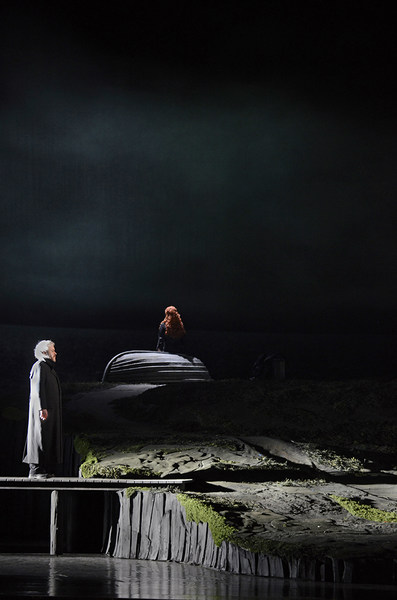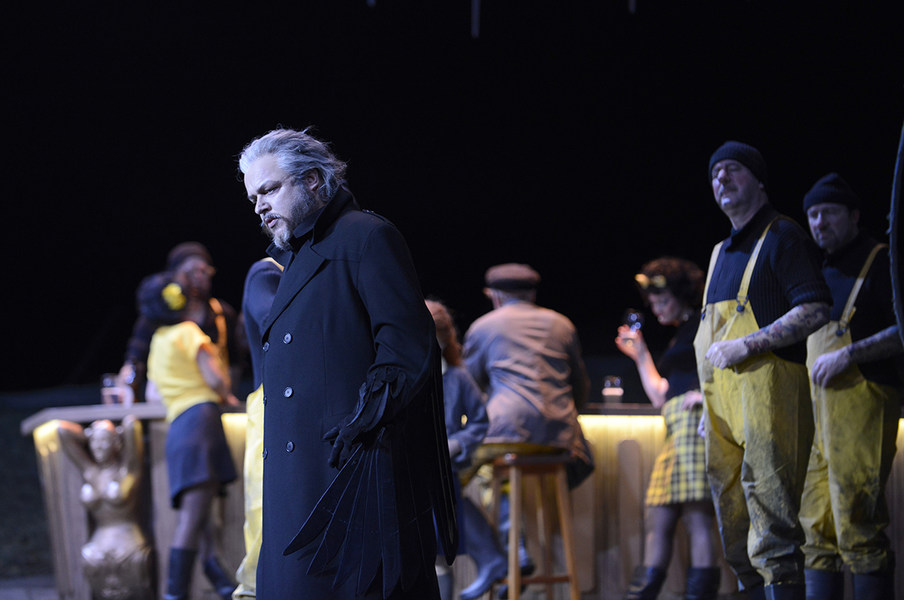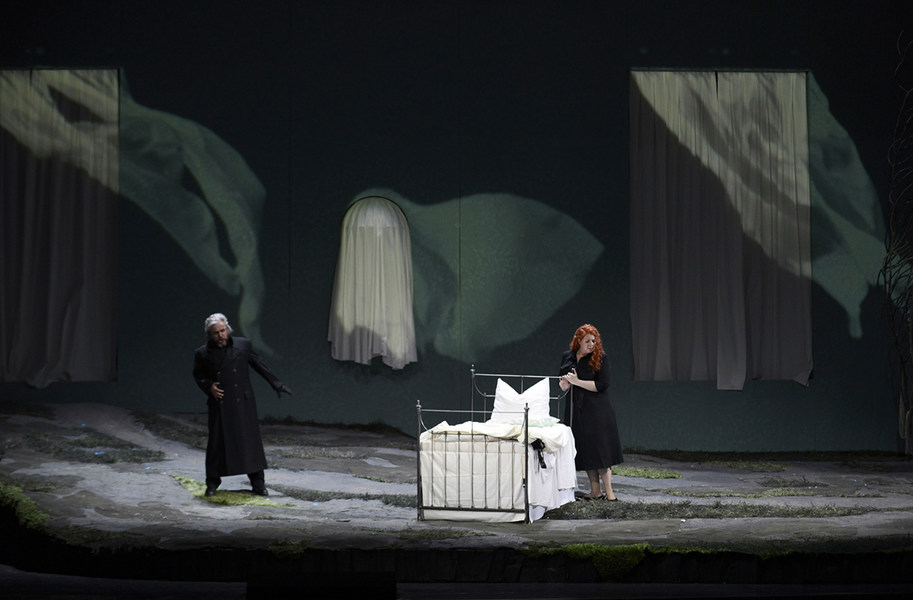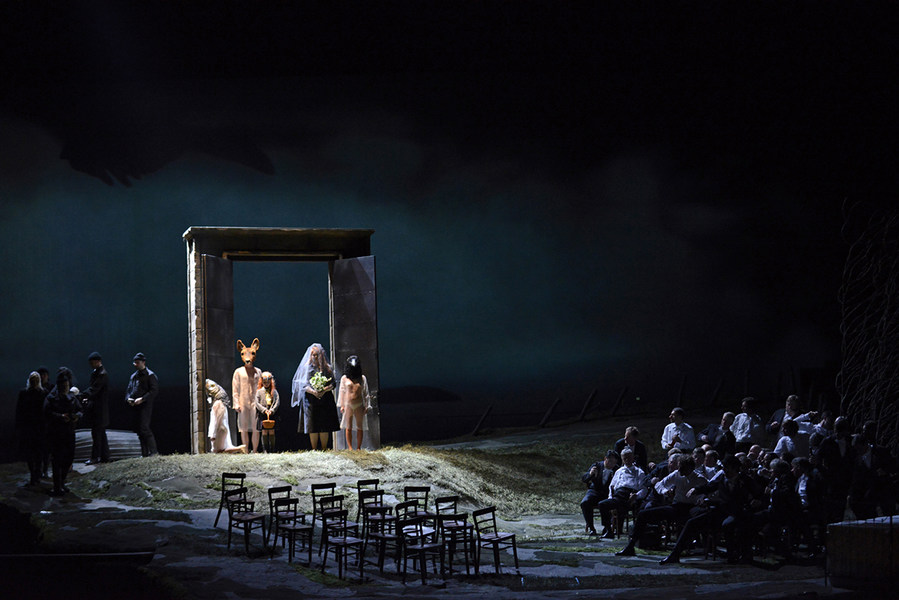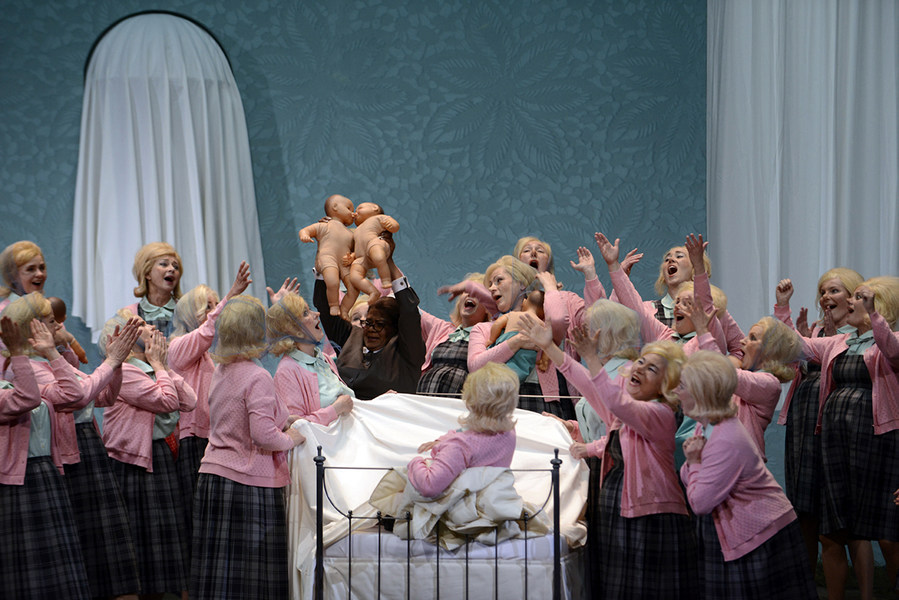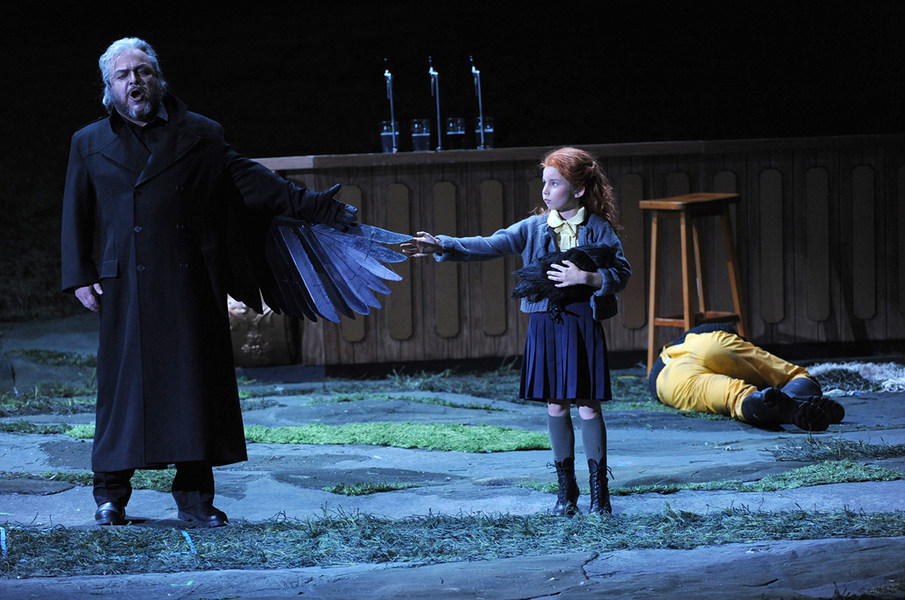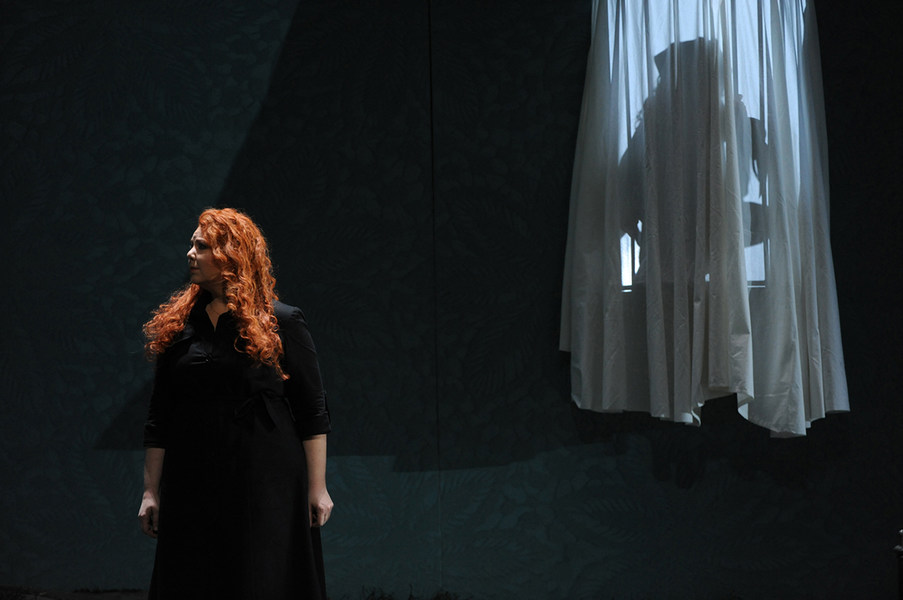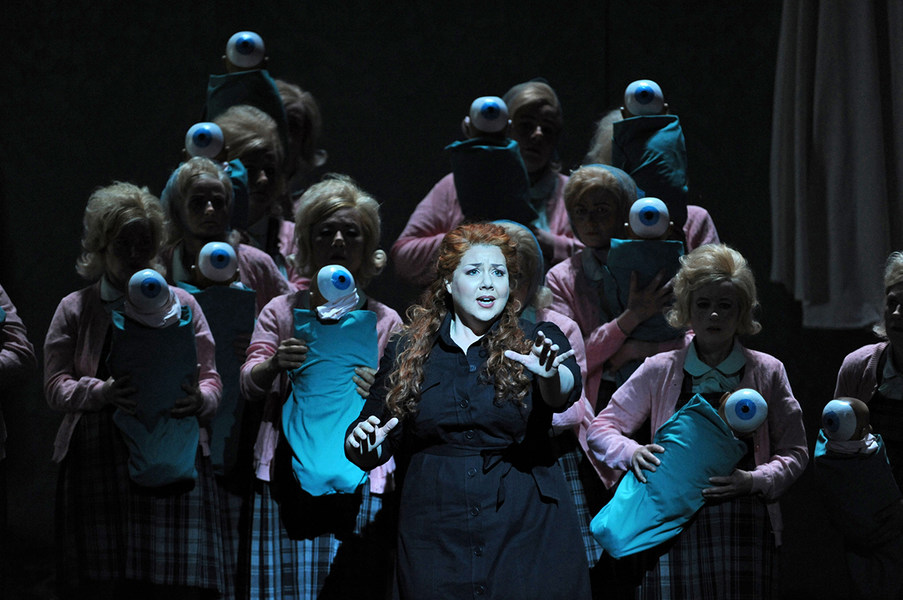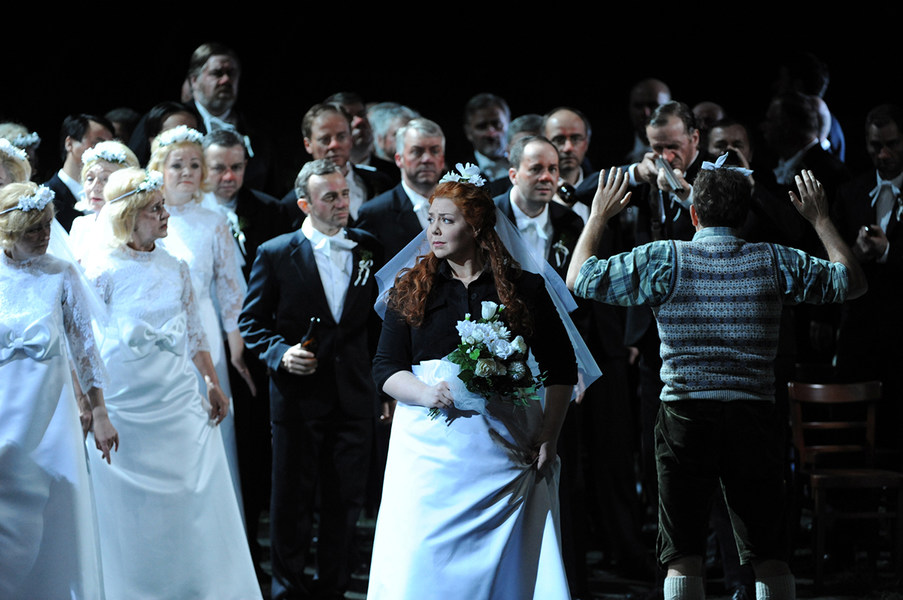Romantic opera in three acts
Libretto by the composer
Performed in German with German and English supertitles
Premiere
15. June 2013,
No further performances in the current season.
Explore
Stücktrailer
The Flying Dutchman
Countless legends tell of the Flying Dutchman, the lonely figure cursed to roam the seas forever, who can only find rest through a woman’s undying love. Senta, destined for a dreary existence as a housewife and mother in her home village, thinks she has been chosen to break the curse. Or does she hope that the stranger can rescue her from the strict confines of her life? Premiered in Dresden in 1843, The Flying Dutchman was Richard Wagner’s first romantic opera. In his staging, Florentine Klepper takes Senta’s point of view, telling in magical, dreamlike episodes of the young woman’s emancipation from her father and her fiancé as well as the social conventions that are suffocating her.
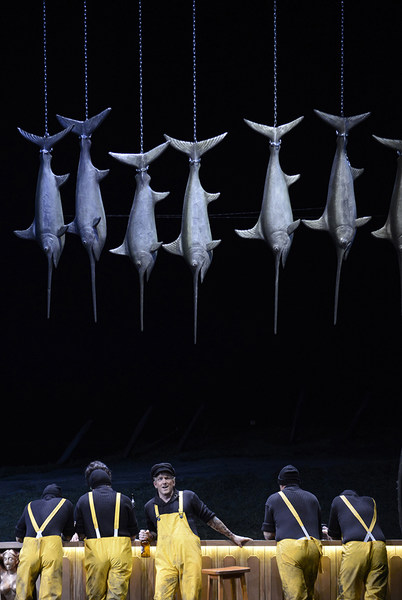
Gallery
